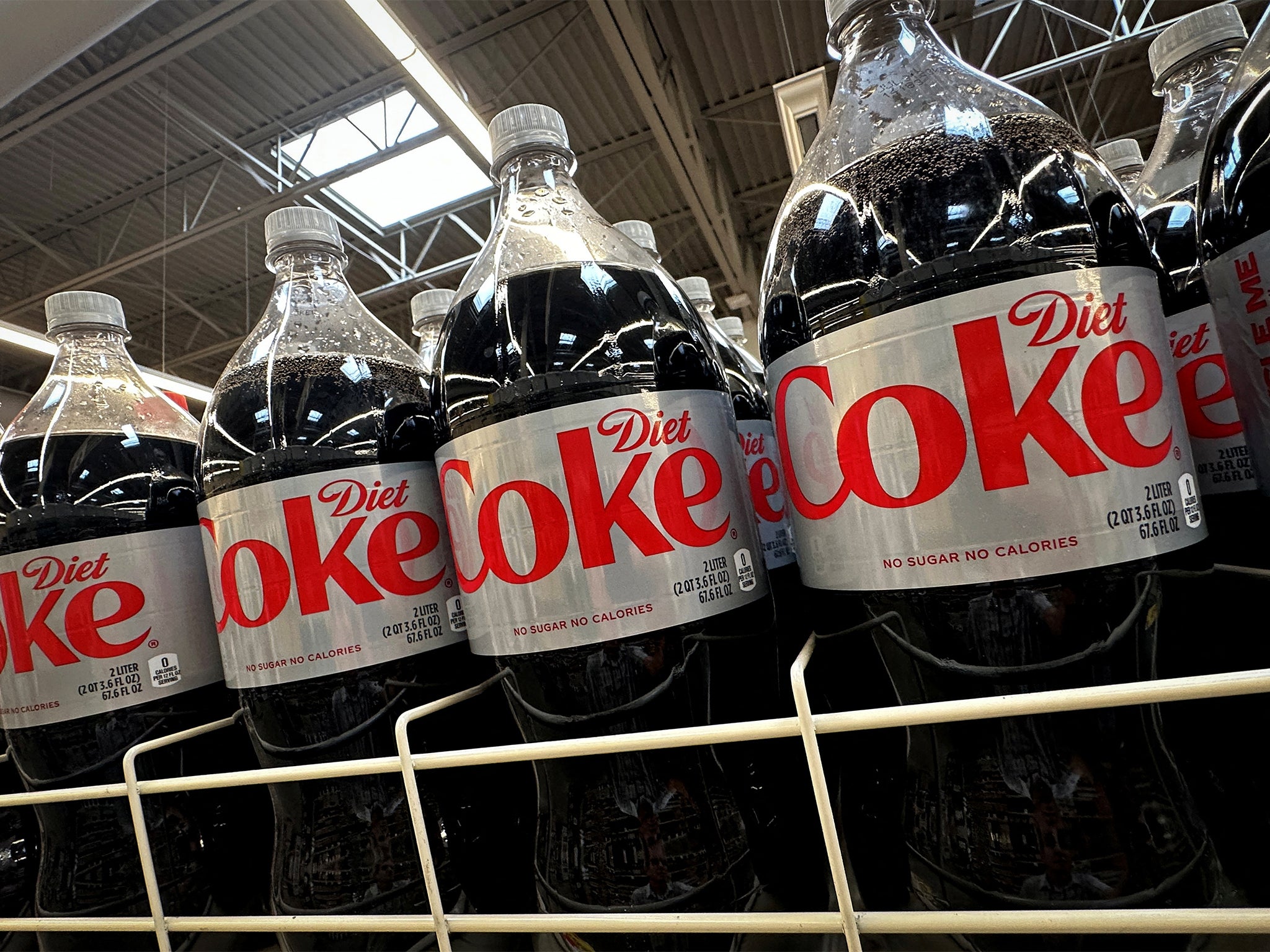Diet Coke safe as long as you don’t drink 14 cans every day, WHO says after aspartame cancer fears
Studies backing advice cite ‘limited evidence’ and call for more research into the issue
Your support helps us to tell the story
From reproductive rights to climate change to Big Tech, The Independent is on the ground when the story is developing. Whether it's investigating the financials of Elon Musk's pro-Trump PAC or producing our latest documentary, 'The A Word', which shines a light on the American women fighting for reproductive rights, we know how important it is to parse out the facts from the messaging.
At such a critical moment in US history, we need reporters on the ground. Your donation allows us to keep sending journalists to speak to both sides of the story.
The Independent is trusted by Americans across the entire political spectrum. And unlike many other quality news outlets, we choose not to lock Americans out of our reporting and analysis with paywalls. We believe quality journalism should be available to everyone, paid for by those who can afford it.
Your support makes all the difference.An artificial sweetener found in Diet Coke is “possibly” carcinogenic but only if you drink the equivalent of nine to 14 cans every day, the World Health Organisation has ruled.
General advice on how much aspartame we can eat or drink has not been changed on the back of the studies which looked into whether consumption of the additive could cause cancer.
The news will come as a relief for industry executives who were anxiously awaiting the announcement on Thursday.
Aspartame is also found in ice cream and chewing gum and has been ruled safe to consume in limited quantities.
The International Agency for Research on Cancer, an arm of the World Health Organisation, has said only heavy consumers of aspartame should consider cutting down.
Diet Coke, Coke Zero, Pepsi Max and 7 Up Free all contain aspartame but, depending on their body weight, the drinker would need to down between multiple cans per day to consume a potentially harmful amount.
For someone weighing 70kg, they would need to drink nine to 14 cans per day to exceed the guidelines.
It means that aspartame ducked the more serious categories of “probably carcinogenic to humans” and “carcinogenic to humans”.
Aspartame is also found in gelatine, ice cream, dairy products such as yoghurt, breakfast cereal, toothpaste and medications such as cough drops and chewable vitamins.
Dr Francesco Branca, director of the organisation’s department of nutrition and food safety, has said that while the report “raised the flag” it should not concern people who enjoy the occasional diet drink.
“We’re not advising consumers to stop consuming (aspartame) altogether. We’re just advising a bit of moderation,” he said.
“The assessments of aspartame have indicated that, while safety is not a major concern at the doses which are commonly used, potential effects have been described that need to be investigated by more and better studies.”

However, the studies cited “limited evidence” and called for more research into the issue with the organisation and its sub-group pledging to monitor evidence.
Harriet Burt, senior policy and international projects officer for World Action on Salt, Sugar and Health based at Queen Mary University of London, said the report emphasised the need for a new approach by food and drink manufacturers.
She said: “This new report from the WHO shows that companies need to reduce the overall sweetness of their products rather than relying so much on sweeteners.
“When done correctly, reformulation can gradually remove excess sugars, salt and saturated fat from foods to improve their overall healthiness without the need for replacement ingredients such as non-sugar sweeteners.”



